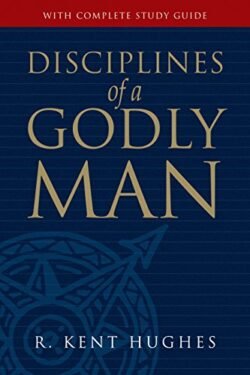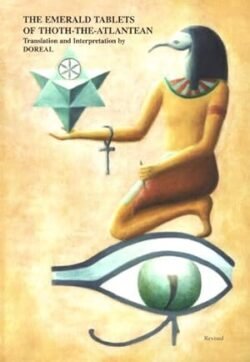“Jesus Calling: A 365-Day Journaling Devotional” by Sarah Young, first published in 2004, is a distinctive daily devotional designed to deepen the reader’s relationship with Jesus Christ. Comprising 365 entries, one for each day of the year, the book presents messages written from the perspective of Jesus speaking directly to the reader. These messages are intended to convey comfort, encouragement, and reassurance of Jesus’ presence and love in the reader’s life. Sarah Young, the author, shares that the writings were born out of her personal journaling during times of prayer, where she focused on listening to Jesus and recording what she believed He was placing on her heart. Each entry is accompanied by related scripture references, offering biblical grounding for the messages and facilitating further study and reflection. The book encourages readers to engage in their own journaling practice, reflecting on the daily messages and scriptures, and recording their thoughts, prayers, and responses. This interactive element aims to enhance the reader’s spiritual journey, making “Jesus Calling” a tool for both reading and active engagement with faith. Character Analysis “Jesus Calling” does not follow a narrative structure but is structured as a daily guide, with each entry designed to speak to the heart of the reader in a personal and intimate manner. The devotional covers a wide range of themes relevant to Christian life, including trust in God, peace in Christ, and living out one’s faith in daily actions. Themes and Analysis Intimacy with Christ: Central to “Jesus Calling” is the theme of developing a closer, more intimate relationship with Jesus, emphasizing the importance of listening for His voice in the midst of life’s busyness. Trust and Surrender: The devotional recurrently addresses the need to trust in Jesus’ plans and timing, surrendering worries and striving for control. Peace and Joy: Through its daily messages, the book seeks to impart a sense of peace and joy that comes from a deep connection with Christ, regardless of external circumstances. “Jesus Calling: A 365-Day Journaling Devotional” by Sarah Young has found a wide audience among those seeking to deepen their spiritual lives and experience a greater sense of Jesus’ presence daily. Its unique approach of presenting messages from Jesus’ perspective offers comfort and inspiration, encouraging readers to not only read but also interact through journaling. As a devotional, it serves as a daily reminder of faith’s power to transform lives, providing a source of strength and encouragement year-round. If the summary caught your interest, Consider reading the full book on AbeBooks. Explore this book on AbeBooks
Streams in the Desert
“Streams in the Desert” by Lettie B. Cowman, first published in 1925, is a beloved daily devotional that has provided comfort and inspiration to millions of readers for nearly a century. Compiled by Cowman during her time as a missionary in Japan and China, the book is a collection of meditations, poems, and excerpts from various authors and thinkers, each selected to offer solace and encouragement in times of hardship and spiritual drought. The devotional is structured to provide a reading for each day of the year, with each entry designed to uplift the spirit and strengthen the faith of the reader. Cowman’s selections are characterized by their depth, drawing from a rich well of Christian spiritual and theological thought, and addressing themes of suffering, faith, perseverance, and the unfailing presence of God in the midst of trials. Character Analysis As a devotional work, “Streams in the Desert” does not follow a narrative structure but is a compilation of entries that stand alone yet collectively offer a cohesive spiritual journey over the course of a year. Cowman’s own experiences of personal suffering and reliance on God’s strength during her missionary work infuse the book with authenticity and empathy. Themes and Analysis Encouragement in Suffering: A primary theme of the devotional is finding hope and encouragement in times of suffering, emphasizing that trials can deepen one’s faith and spiritual understanding. Trust in God: Cowman repeatedly points to the importance of trusting in God’s plan and timing, even when His purposes are not immediately clear. Spiritual Growth: The book encourages readers to see difficult times not as obstacles but as opportunities for spiritual growth and closer communion with God. “Streams in the Desert” stands out as a timeless devotional, its enduring popularity a testament to the depth and relevance of its content. Lettie B. Cowman’s careful curation of inspirational writings provides a daily source of strength and reflection for believers navigating the challenges of life. Its message of hope and perseverance through faith continues to resonate with readers, making “Streams in the Desert” a cherished companion in the journey of faith. If the summary caught your interest, Consider reading the full book on AbeBooks. Explore this book on AbeBooks
Disciplines of a Godly Man
“Disciplines of a Godly Man” by R. Kent Hughes, first published in 1991, is a comprehensive guide aimed at men who seek to live their lives according to Christian principles and values. This influential book combines biblical wisdom with practical advice, covering various aspects of personal and spiritual discipline that are essential for godly living. Hughes addresses disciplines related to the mind, soul, character, relationships, and ministry, offering insights and guidance on how to cultivate a life that honors God in all respects. The book is structured around specific disciplines that Hughes believes are foundational for any man striving to lead a spiritually fulfilling life. These include purity, marriage, fatherhood, friendship, mind, devotion, prayer, and church involvement, among others. Through scriptural references and personal anecdotes, Hughes illustrates how these disciplines can be developed and maintained, even in the face of modern challenges and temptations. Character Analysis As “Disciplines of a Godly Man” is a non-fiction work focused on spiritual growth and personal development, it does not feature characters in the traditional sense. Instead, R. Kent Hughes serves as a mentor and guide, drawing from his own experiences and the teachings of the Bible to advocate for a disciplined approach to Christian living. Themes and Analysis Personal Discipline: At its core, the book emphasizes the importance of personal discipline as the foundation for a godly life. Hughes argues that spiritual growth and integrity require intentional effort in various areas of life. Spiritual Leadership: Hughes also focuses on the role of men as spiritual leaders in their families and communities, encouraging readers to take responsibility for their influence on others. Holistic Spirituality: The book advocates for a holistic approach to spirituality that encompasses not just religious observance but also moral integrity, personal relationships, and community involvement. “Disciplines of a Godly Man” by R. Kent Hughes is a powerful resource for Christian men seeking to deepen their faith and live out their convictions in all areas of life. Its comprehensive approach to spiritual discipline offers both challenge and encouragement, calling on men to pursue godliness through deliberate practice and devotion. With its blend of biblical teaching and practical application, the book remains a valuable guide for anyone looking to grow in their spiritual life and impact the world around them positively. If the summary caught your interest, Consider reading the full book on AbeBooks. Explore this book on AbeBooks
Lovingkindness
“Lovingkindness: The Revolutionary Art of Happiness” by Sharon Salzberg, part of the Shambhala Classics series, published in 1995, is a transformative guide that introduces readers to the practice of lovingkindness meditation. This form of meditation, rooted in Buddhist traditions, focuses on developing an attitude of love and compassion towards oneself and others. Salzberg, a co-founder of the Insight Meditation Society, uses her extensive experience to guide readers through the practical steps of cultivating lovingkindness and explores its profound impact on personal well-being and relationships. The book is structured around the development of lovingkindness (Metta in Pali) and its application in daily life, providing readers with meditation practices, personal anecdotes, and teachings to foster a deeper understanding and experience of lovingkindness. Salzberg argues that by embracing lovingkindness, individuals can overcome feelings of isolation, fear, and negativity, leading to a more fulfilling and happy life. Character Analysis As a non-fiction guide to meditation and spiritual practice, “Lovingkindness: The Revolutionary Art of Happiness” does not feature characters or a narrative storyline. Sharon Salzberg herself serves as both the author and a spiritual teacher, sharing insights from her personal journey and teachings to help readers embark on their own path towards lovingkindness and happiness. Themes and Analysis Cultivation of Lovingkindness: At the heart of the book is the practice of lovingkindness meditation, aimed at nurturing unconditional love and compassion for oneself and others. Interconnectedness: Salzberg emphasizes the interconnectedness of all beings and how cultivating lovingkindness can break down barriers of separation, leading to a greater sense of unity and empathy. Transformation Through Compassion: The book explores how lovingkindness can transform personal attitudes, relationships, and one’s approach to life, promoting peace, happiness, and a deep sense of fulfillment. “Lovingkindness: The Revolutionary Art of Happiness” is a profound and accessible guide to developing a compassionate heart and achieving happiness through the practice of lovingkindness meditation. Sharon Salzberg’s compassionate and insightful approach offers readers practical tools and wisdom to transform their lives by embracing kindness and compassion as foundational principles. The book stands as a testament to the power of lovingkindness to bring about personal and societal change, making it a valuable resource for anyone seeking to cultivate a more loving and joyful existence. If the summary caught your interest, Consider reading the full book on AbeBooks. Explore this book on AbeBooks
Trusting God: Even When Life Hurts
“Trusting God: Even When Life Hurts” by Jerry Bridges, published in 1988, is a profound exploration of faith and the sovereignty of God in the midst of life’s trials and tribulations. Bridges delves into the question of why a loving and omnipotent God allows pain and suffering, offering biblical insights and personal reflections to help believers understand and embrace God’s purposes in their hardships. The book encourages readers to trust in God’s wisdom, love, and sovereignty, even when facing difficult circumstances that seem inexplicable and unbearable. Character Analysis As a non-fiction work centered on Christian teachings, “Trusting God: Even When Life Hurts” does not have characters or a narrative structure in the traditional sense. Instead, Jerry Bridges acts as a guide for readers, sharing his insights and interpretations of biblical scripture to explore the nature of God’s sovereignty and the importance of trust in the Christian faith. Themes and Analysis The Sovereignty of God: A key theme in the book is the sovereignty of God over all aspects of life, including the trials and sufferings that believers may face. Bridges emphasizes that nothing happens outside of God’s control and plan, even when we cannot understand His reasons. Faith and Trust in Difficult Times: The book explores the challenge of maintaining faith and trust in God when experiencing pain, loss, or injustice. It provides encouragement and practical advice for Christians to rely on God’s promises and character, especially when life’s circumstances are most challenging. The Purpose of Suffering: Bridges also addresses the purpose behind suffering, suggesting that it can lead to spiritual growth, a deeper reliance on God, and a better understanding of His grace and mercy. “Trusting God: Even When Life Hurts” is a valuable resource for anyone struggling with questions about God’s role in suffering and adversity. Jerry Bridges offers a compassionate and biblically grounded perspective that challenges and comforts readers, encouraging a deeper trust in God’s plan and purpose for their lives. Through a combination of scriptural analysis, personal anecdotes, and practical advice, the book serves as a guide for navigating life’s trials with faith and confidence in God’s sovereign love. It remains a relevant and encouraging work for those seeking to strengthen their faith and understanding of God amidst life’s inevitable challenges. If the summary caught your interest, Consider reading the full book on AbeBooks. Explore this book on AbeBooks
The Seat of the Soul
“The Seat of the Soul: 25th Anniversary Edition with a Study Guide” by Gary Zukav is an expanded version of his groundbreaking book that has captivated millions of readers worldwide. First published in 1989, this seminal work delves into the concept of the soul and its profound impact on personal growth and human consciousness. Zukav explores themes such as intuition, psychology, and quantum physics to illustrate how our perception of reality is evolving from seeing the world through the lens of the five senses to understanding it through the perspective of the soul. This 25th-anniversary edition includes a study guide that offers readers reflective questions and exercises to further explore the book’s concepts, making it an invaluable resource for those on a spiritual journey. Character Analysis As a philosophical and spiritual guide, “The Seat of the Soul” does not follow a narrative structure with characters. Instead, Gary Zukav himself acts as a teacher and mentor, guiding readers through complex ideas with clarity and insight. His approachable writing style makes profound spiritual concepts accessible, encouraging readers to examine their lives and the choices they make from a soul-centered perspective. Themes and Analysis Authentic Power: Zukav introduces the concept of authentic power, which arises from aligning one’s personality with the soul, leading to harmony, cooperation, and sharing. Intention and Choice: A key theme in the book is the importance of intention behind our choices, as Zukav argues that conscious choices made in alignment with the soul lead to spiritual growth. Multi-Sensory Perception: Zukav discusses the transition from a five-sensory paradigm, focused on the external world, to a multi-sensory perspective that recognizes the interconnectedness of all things and the importance of intuition and inner guidance. “The Seat of the Soul: 25th Anniversary Edition with a Study Guide” by Gary Zukav offers a transformative look at how understanding the soul can lead to profound personal and societal changes. With its inclusion of a study guide, this edition invites readers to actively engage with its teachings, facilitating deeper reflection and application of its principles. Zukav’s work remains a powerful influence in the fields of spirituality and personal development, offering insights that resonate with those seeking to live a more conscious and fulfilling life. Through “The Seat of the Soul,” readers are encouraged to explore the depths of their being and embrace the journey of spiritual evolution. If the summary caught your interest, Consider reading the full book on AbeBooks. Explore this book on AbeBooks
The Emerald Tablets of Thoth the Atlantean
“The Emerald Tablets of Thoth the Atlantean” is a text that purports to reveal the wisdom of Thoth, an ancient Egyptian deity of wisdom, writing, and magic, who is said to have later ruled the legendary lost continent of Atlantis. The tablets are described as containing knowledge on various esoteric and spiritual topics, offering insights into the mysteries of the universe, the nature of reality, and the path to enlightenment. Written in a cryptic and poetic style, the text covers themes such as the origins of civilization, cosmic laws, and the development of spiritual consciousness. The work is often referenced in discussions of Hermetic philosophy, occult practices, and ancient astronaut theories. Character Analysis As a mystical and philosophical work, “The Emerald Tablets of Thoth the Atlantean” does not feature narrative characters in the traditional sense. Instead, Thoth himself serves as the omniscient narrator, imparting his ancient wisdom to the reader. His voice transcends time and space, offering guidance on spiritual transformation and the attainment of higher knowledge. Themes and Analysis Universal Wisdom and Laws: The text emphasizes the existence of universal laws and principles that govern the cosmos, suggesting that understanding these laws is key to spiritual evolution. Alchemy and Transformation: It delves into alchemical processes, not just in the physical sense, but as metaphors for spiritual purification and enlightenment. The Mystery of Atlantis: The tablets add to the lore of Atlantis, portraying it as a highly advanced, spiritual civilization from which ancient wisdom originates. “The Emerald Tablets of Thoth the Atlantean” remains a fascinating and enigmatic work within the fields of spirituality and esoteric philosophy. Its appeal lies in its promise of hidden knowledge and the potential for personal transformation through the application of ancient wisdom. Whether regarded as literal truth, symbolic mythology, or allegorical teaching, the text invites readers on a journey of exploration into the mysteries of life and the universe. Thoth’s teachings, as presented in the tablets, continue to inspire those seeking deeper understanding of themselves and the world around them, making it a perennial source of intrigue and inspiration for followers of mystical traditions. If the summary caught your interest, Consider reading the full book on AbeBooks. Explore this book on AbeBooks
Return to Love
“Return to Love: Reflections on the Principles of a Course in Miracles” by Marianne Williamson is a transformative book that delves into the teachings of “A Course in Miracles,” a spiritual self-study program. Williamson interprets the Course’s principles, focusing on love and forgiveness as the foundations for inner peace and healing. The book discusses how to apply love in daily life, overcome fear, and embrace a spiritual journey towards self-discovery and connection with others. Through personal anecdotes and practical advice, Williamson invites readers to consider a path of love as a powerful means to transform their lives and the world around them. Character Analysis While “Return to Love” does not feature characters in the traditional sense, Marianne Williamson herself serves as both the guide and the narrator, sharing insights from her own life and spiritual journey. Her reflections are deeply personal, making her the central figure through which the teachings of “A Course in Miracles” are explored. Marianne Williamson As the author, Williamson embodies the journey from fear to love, using her experiences to illustrate the transformative power of applying the Course’s principles. Her candid and heartfelt narrative acts as a testament to the challenges and rewards of embracing a life guided by love and forgiveness. Williamson’s role as a spiritual teacher is evident as she interprets complex spiritual concepts in accessible ways, encouraging readers to embark on their own paths of personal and spiritual growth. Themes and Analysis Love as a Transformative Power: The core theme of the book is the idea that choosing love over fear can radically change one’s life and relationships. Williamson emphasizes that love is not a passive state but an active choice that influences our perceptions and interactions. Forgiveness: The book highlights forgiveness as a crucial aspect of the journey towards love and healing. Williamson discusses forgiveness not just as a moral virtue but as a means to release past grievances and open oneself to love. Spiritual Awakening: “Return to Love” explores the concept of spiritual awakening as a process of recognizing one’s divine nature and the interconnectedness of all life. It encourages readers to see beyond the ego’s limitations and to identify with a higher sense of purpose and unity. “Return to Love: Reflections on the Principles of a Course in Miracles” by Marianne Williamson offers a profound and inspiring look at the potential for personal transformation through the principles of love and forgiveness. The book serves as both a guide and an invitation to reevaluate one’s life and choices through a spiritual lens, emphasizing the impact of love on achieving peace and fulfillment. Williamson’s reflections provide a roadmap for navigating the complexities of life with grace and compassion, making “Return to Love” a resonant work for those seeking to deepen their spiritual understanding and practice. If the summary caught your interest, Consider reading the full book on AbeBooks. Explore this book on AbeBooks
More Than a Carpenter
“More Than a Carpenter” by Josh McDowell is a compelling exploration of Jesus Christ’s identity, focusing on the argument that Jesus was not just a carpenter or a great teacher, but the Son of God. Written from McDowell’s perspective as a former skeptic turned believer, the book combines historical evidence, personal testimony, and logical argumentation to address doubts about Jesus’s divinity and the reliability of the New Testament. Character Analysis Josh McDowell: As the author and the central figure in the narrative of his spiritual journey, McDowell presents himself as a character who undergoes a profound transformation. Initially skeptical of Christianity’s claims, his quest for truth leads him to conclude that Jesus Christ’s historical and spiritual significance cannot be dismissed as mere mythology or legend. McDowell’s analytical approach to the subject matter makes the book accessible to readers who may share his initial skepticism. Themes and Analysis Historical Reliability of the Gospels: McDowell examines the historical evidence supporting the authenticity of the Gospel accounts, arguing for their reliability as sources of truth about Jesus’s life and ministry. esus’s Identity: The book delves into the claims Jesus made about Himself, arguing that His teachings, miracles, and resurrection validate His claim to divinity. Faith and Reason: A significant theme is the interplay between faith and reason, with McDowell asserting that believing in Jesus’s divinity is not a leap into irrationality but a reasoned response to evidence. “More Than a Carpenter” offers a persuasive case for Jesus Christ’s unique identity as the Son of God, blending personal narrative with scholarly research. Josh McDowell’s journey from skepticism to faith provides a compelling framework for the book’s arguments, making it an essential read for those exploring the foundations of Christianity or seeking to strengthen their faith. The book not only addresses common doubts and questions about Christianity but also invites readers to consider the implications of Jesus’s life and teachings on their own lives. If the summary caught your interest, Consider reading the full book on AbeBooks. Explore this book on AbeBooks
Prayers to the Seven Sacred Flames
This guidebook provides readers with prayers, meditations, and insights designed to connect them with the energies of the Seven Sacred Flames. Each flame is associated with a particular color, divine quality, and Ascended Master, guiding individuals through a process of inner transformation and enlightenment. The book is structured to introduce each of the Seven Flames one by one, explaining their significance, associated virtues, and how individuals can invoke their power in daily life. The Seven Sacred Flames include the Blue Flame of Will and Power, the Yellow Flame of Wisdom and Illumination, the Pink Flame of Love and Adoration, the White Flame of Purity and Ascension, the Green Flame of Healing and Prosperity, the Gold and Ruby Flame of Peace and Manifestation, and the Violet Flame of Transmutation and Freedom. Each section of the book offers prayers and meditations specific to each flame, intended to help readers align with these powerful energies. Themes and Analysis Spiritual Growth and Transformation: The book emphasizes the potential for personal transformation and spiritual growth through connection with the divine energies of the Seven Sacred Flames. Healing and Enlightenment: It highlights the healing properties of each flame, offering readers paths to physical, emotional, and spiritual healing and enlightenment. Integration of Universal Virtues: “Prayers to the Seven Sacred Flames” encourages the integration of universal virtues such as love, wisdom, and purity into one’s life, promoting a holistic approach to spiritual development. “Prayers to the Seven Sacred Flames” serves as a spiritual tool for individuals seeking to deepen their connection with divine energies and embark on a path of inner transformation. The guidebook’s focus on meditation, prayer, and the invocation of the Seven Sacred Flames offers a unique approach to spirituality that encompasses healing, enlightenment, and the cultivation of virtues. Through the practices outlined in the book, readers are invited to explore the depths of their being, align with powerful spiritual energies, and experience personal and collective growth. This book is a valuable resource for those on a spiritual journey, providing guidance and inspiration to harness the transformative power of the Seven Sacred Flames. If the summary caught your interest, Consider reading the full book on AbeBooks. Explore this book on AbeBooks










